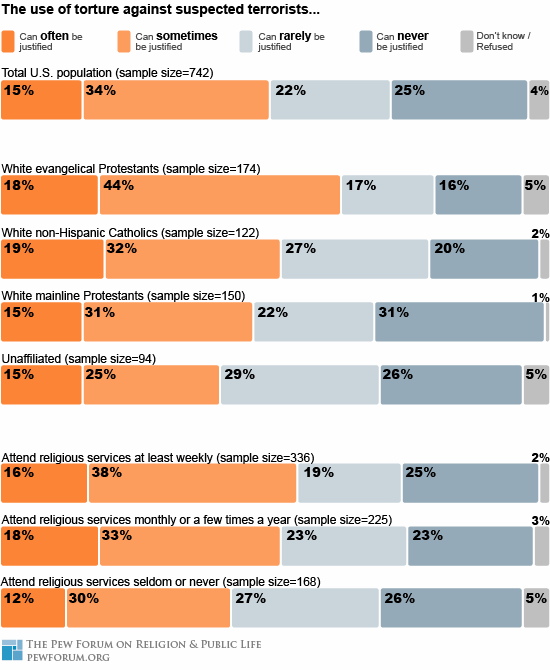Updated May 7, 2009
Amid intense public debate over the use of torture against suspected terrorists, an analysis by the Pew Research Center’s Forum on Religion & Public Life of a new survey by the Pew Research Center for the People & the Press illustrates differences in the views of four major religious traditions in the U.S. about whether torture of suspected terrorists can be justified. Differences in opinion on this issue also are apparent based on frequency of attendance at religious services.
However, statistical analysis that simultaneously examines correlations between views on torture, partisanship, ideology and demographic variables (including religion, education, race, etc.) finds that party and ideology are much better predictors of views on torture than are religion and most other demographic factors (See “The Torture Debate: A Closer Look“). Of course, religion itself is known to be a strong factor shaping individuals’ partisanship and political ideology. Attitudes about torture are likely to reflect both moral judgments and political considerations – both of which may be formed in part by religious convictions – about circumstances under which torture may be justified.

Data from a Pew Research Center survey conducted April 14-21, 2009, among 742 American adults. Other religious groups are not reported due to small sample sizes.
Question wording: Do you think the use of torture against suspected terrorists in order to gain important information can often be justified, sometimes be justified, rarely be justified, or never be justified?




